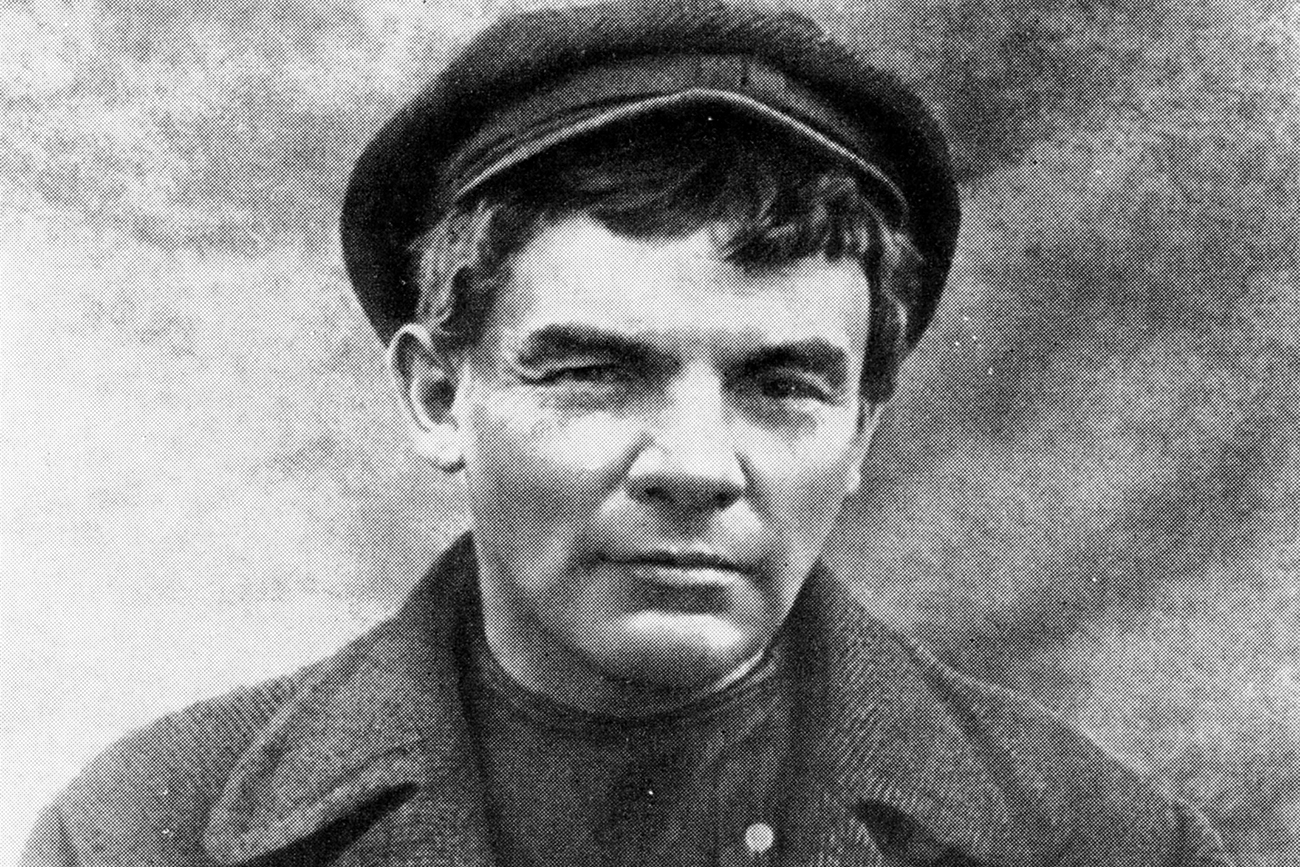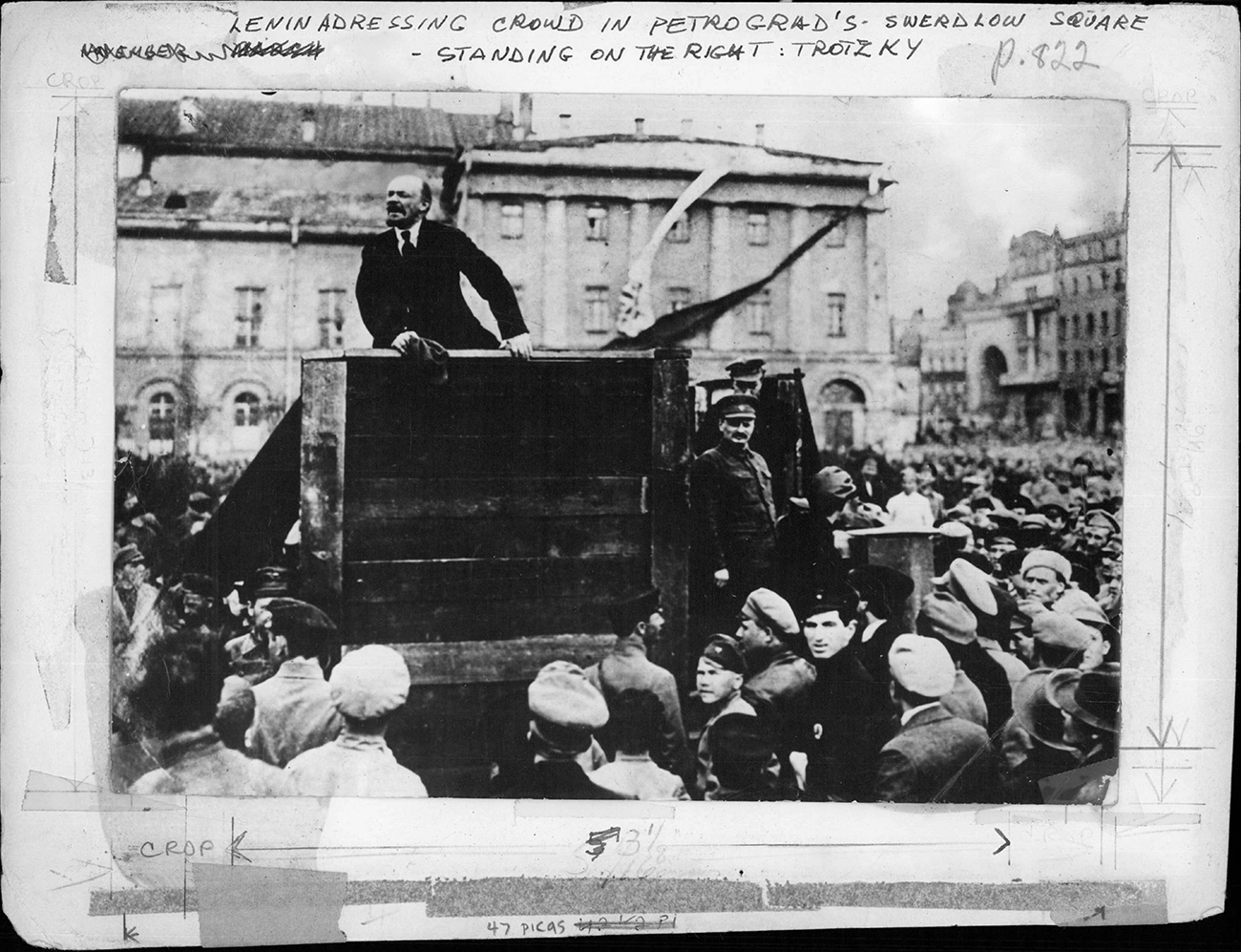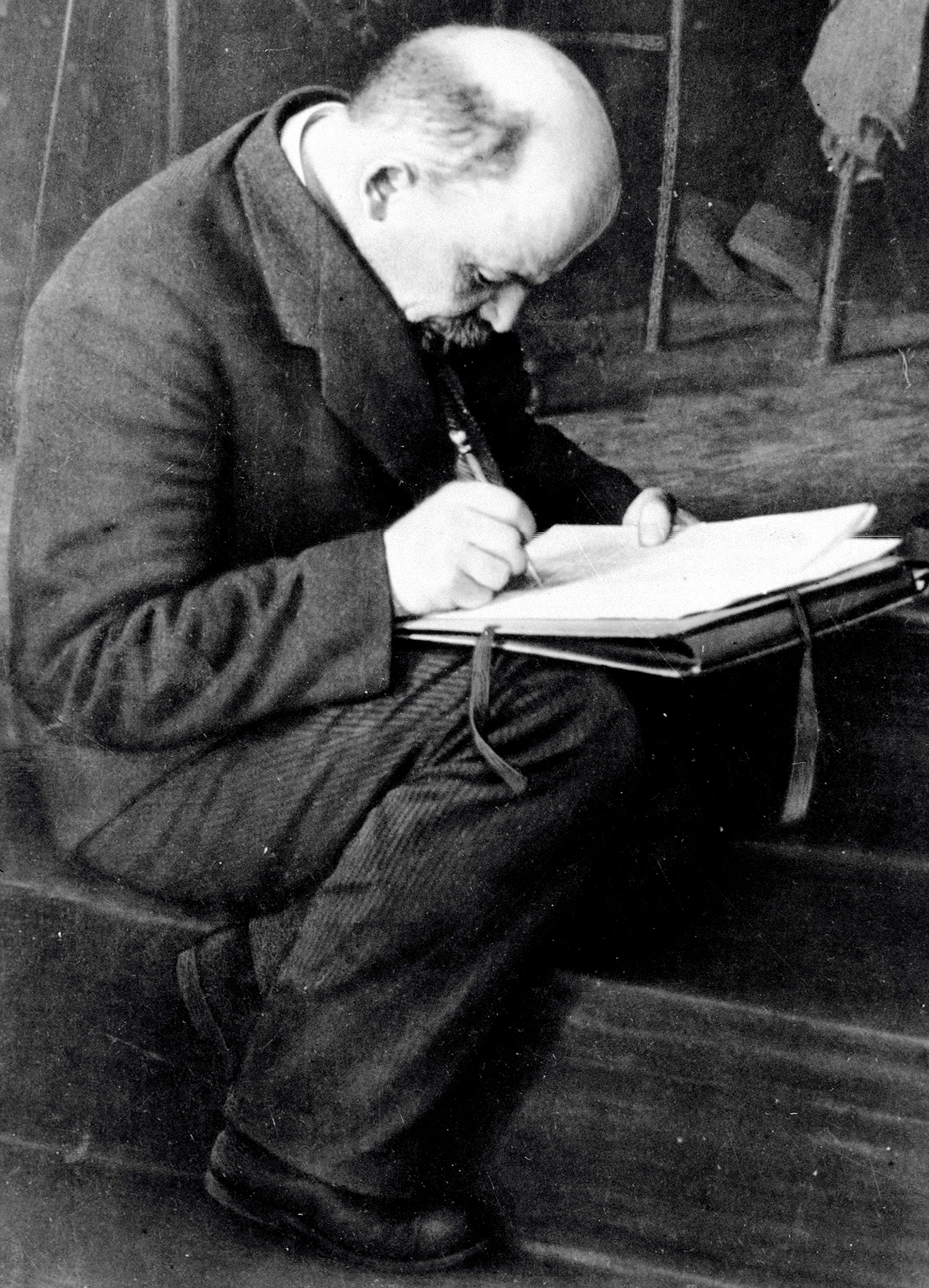How Lenin came to lead the Russian Revolution

From an armored car, with floodlights beaming down on him, Lenin announced the impending victory of the world socialist revolution.
Mary Evans/Global Look PressWhen the February Revolution of 1917 took place, Lenin was in Switzerland. He did not return to Russia until over a month later, in early April.
At the time, the Petrograd Soviet of Workers' and Soldiers' Deputies was sharing power with the Provisional Government. Lenin was the leader of one of the main socialist parties, so members of the Petrograd Soviet organized a welcoming party for his return. When he arrived at Finland Station late in the night of April 3, he was greeted by Nikolai Chkheidze, head of the Petrograd Soviet. Chkheidze immediately proposed that Lenin support their plan to unite with the Provisional Government and advocated for the continuation of the war.
What Lenin did next did not please Chkheidze at all. Lenin completely bypassed him, appealing instead to the workers, soldiers and sailors, people he referred to as "the vanguard of the international revolutionary proletariat." He proclaimed that "this predatory imperialist war is the beginning of a civil war that will spread throughout Europe." The audience proceeded to carry Lenin from the station into the square. From an armored car, with floodlights beaming down on him, Lenin announced the impending victory of the world socialist revolution.
One historian later wrote, "In the floodlights that cut through the darkness of the night, Lenin, with his arm outstretched, seemed like a giant (in Russian)." Menshevik Nikolai Sukhanov, who was not particularly fond of Lenin, later recalled, "What he said was completely out of the context of the Russian Revolution from the perspective of the people who had participated in it and had been its direct witnesses. It was something extraordinary! Suddenly, right before our eyes, right before all of us, there was a flash of bright, blinding light. We, who had been burdened by routine revolutionary work, were knocked off our feet."
 Lenin Addressing Crowd In Petrograd's Swerdlow Square 1919. Source: ZUMA Press/Global Look Press
Lenin Addressing Crowd In Petrograd's Swerdlow Square 1919. Source: ZUMA Press/Global Look Press
Moving towards a socialist revolution
This "light" that Sukhanov refers to was a device that Lenin used to set the stage for the socialist revolution. In opposition to the majority of Russian socialists, including those from his own Bolshevik party, Lenin was convinced that the time had come to end the "bourgeois" phase of the revolution. He was dissatisfied with the current political situation where the Provisional Government, consisting of "capitalist ministers," was governing the country.
Lenin believed that power must be given to "the proletariat and the poorest classes of peasants." Moreover, he insisted there should be a complete rejection of the existing forms of government. He claimed the need for "not a parliamentary republic, but a republic of Soviets of Workers’, Agricultural Labourers’ and Peasants’ Deputies throughout the country, from top to bottom." Lenin elaborated on these positions in an article that later became known as The April Theses.
Many Bolshevik leaders remained vehemently opposed to Lenin's viewpoints. They argued that the bourgeois phase of Russia's evolution could not yet be considered complete and pointed out that socialism in Russia was still out of reach due to the country's backwardness, the huge population of peasants and the small working class. Over the course of dozens of speeches, Lenin responded to these criticisms by highlighting the dangers of dogmatism and the necessity to "consider real life." He repeated these arguments at numerous party assemblies in Petrograd that April and was eventually able to persuade both the participants and the Bolshevik leaders to accept his point of view. The Bolsheviks adopted Lenin's slogans: "No support for the Provisional Government!" and "All power to the Soviets!"
 Vladimir Lenin on rostrum steps is making notes during the meeting of the III Comintern Congress in the former Andreyevsky Hall of the Kremlin. Source: Karl Bulla/RIA Novosti
Vladimir Lenin on rostrum steps is making notes during the meeting of the III Comintern Congress in the former Andreyevsky Hall of the Kremlin. Source: Karl Bulla/RIA Novosti
A successful coup d'état
Following the publication of The April Theses, the Mensheviks accused Lenin of attempting to instigate a civil war in Russia. Lenin, the leader of the Bolsheviks, replied that he was merely calling on party members to promote the transition of power to the Soviets and was not calling for an armed struggle.
In the following months, two Bolshevik-supported mass protests of workers and soldiers took place in Petrograd opposing the Provisional Government. Despite this, the leaders of the Petrograd Soviet and the Provisional Government continued to remain more influential than the supporters of Lenin.
This situation changed dramatically in the fall, however, following the unsuccessful coup attempt led by the right-wing General Lavr Kornilov. Public support for the left grew and the Bolsheviks obtained a majority in the Petrograd Soviet. In October, propelled by this momentum, the Bolsheviks overthrew the Provisional Government and seized power in Petrograd under the name the Second All-Russian Congress of Soviets. Lenin had altered the direction of the party in April 1917, and played a decisive role again that October as he persuaded his hesitant comrades that there was potential for a Bolshevik victory.
Read more: Will Russia ever revert back to a monarchy?
If using any of Russia Beyond's content, partly or in full, always provide an active hyperlink to the original material.
Subscribe
to our newsletter!
Get the week's best stories straight to your inbox